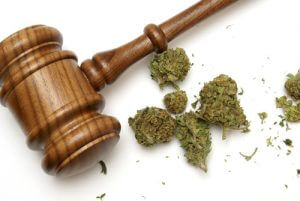While these claims/habits are by no means uncommon, they are not necessarily true. Looking to shed some light on just how alcohol and marijuana use impacts motorists’ abilities, federal authorities1 recently sponsored a simulator study at the University of Iowa (UI). This study focused on evaluating the psychoactive effects of alcohol and/or pot impairment on drivers’ abilities.
Testing Methods: Cheech & Chong Hit the Road
Using the National Advanced Driving Simulator (NADS), which is actually a stylish-looking 1996 Malibu sedan anchored atop of a 24-foot diameter dome, the study assessed motorists’ performance in regards to three different factors:
- The degree of weaving inside of lanes
- Whether the car departed from the lane (and, if so, how many times a departure occurred)
- Vehicle speeds when drivers were weaving.
While some research subjects were evaluated after imbibing alcohol alone or after using only pot, others were tested after consumption of both alcohol and marijuana.
The Findings

Simulator Study Tests Drivers’ Abilities When Impaired by Alcohol & Pot
After testing nearly 20 subjects in 35- to 45-minute driving simulations, UI researchers drew the following conclusions:
- Drunk drivers performed poorly and exhibited impaired motor kills in all three testing scenarios.
- Stoned drivers who consumed a vaporized form of marijuana only exhibited problems weaving inside of their lane of traffic.
- Drivers with blood concentrations of 13.1 ug (of THC/mL of blood) demonstrated signs of weaving comparable to drivers with BACs of .08 breath alcohol concentration (Note: While the legal limit for alcohol in Colorado and throughout the U.S. is 0.08, Colorado’s legal limit for marijuana is 5 ug/mL).
- Unsurprisingly, the subjects who combined THC and alcohol weaved more than those who only tested with one kind of substance in their systems.
“What we saw was an additive effect, not a synergistic effect, when we put them together,” said Tim Brown, associate research scientist and study co-author of the study, in June 2015 UI press release. “You get what you expect if you take alcohol and cannabis and merge them together.”
Although NHTSA officials have yet to release any official comments on the findings of this study, they did issue the following thoughtful commentary beforehand:
“The mixed results from previous cannabis-dosed driving studies have demonstrated that its effects on driving can be more difficult to detect than the effects of alcohol.” – Dereece Smither, NHTSA project manager, stated in a press release predating the study.
The Wild Card: The Tolerance Factor
While the above findings may present a clearer picture of just how alcohol and pot use can impact drivers’ abilities, that picture is likely not complete, some critics have pointed out.
In particular, these critics have noted that the “wild” factor of individual tolerance levels can dramatically impact how alcohol and pot use affects people’s abilities, including if they end up behind the wheel of a vehicle. And that tolerance argument can be play a big role in some DUI cases, especially those that involve allegations of pot (or other drug) use.
Facing DUI Charges? Contact a Colorado Springs DUI Lawyer at Kohn Law Firm
If you have been charged with any type of DUI offense in Colorado, one of the best things you can do to protect yourself and your rights moving forward is to contact an experienced, aggressive Colorado Springs DUI Attorney at Kohn Law Firm
You can contact us by calling (719) 328-9555 or by emailing us using the contact form at the top of this page. From our offices in Colorado Springs, we provide the highest quality legal services to clients throughout the Pikes Peak region and Colorado.
________________________________________________
1: National Highway Traffic Safety Administration (NHTSA), National Institute of Drug Abuse, and the Office of National Drug Control Policy
NEED LEGAL HELP?
Contact Us Now!
